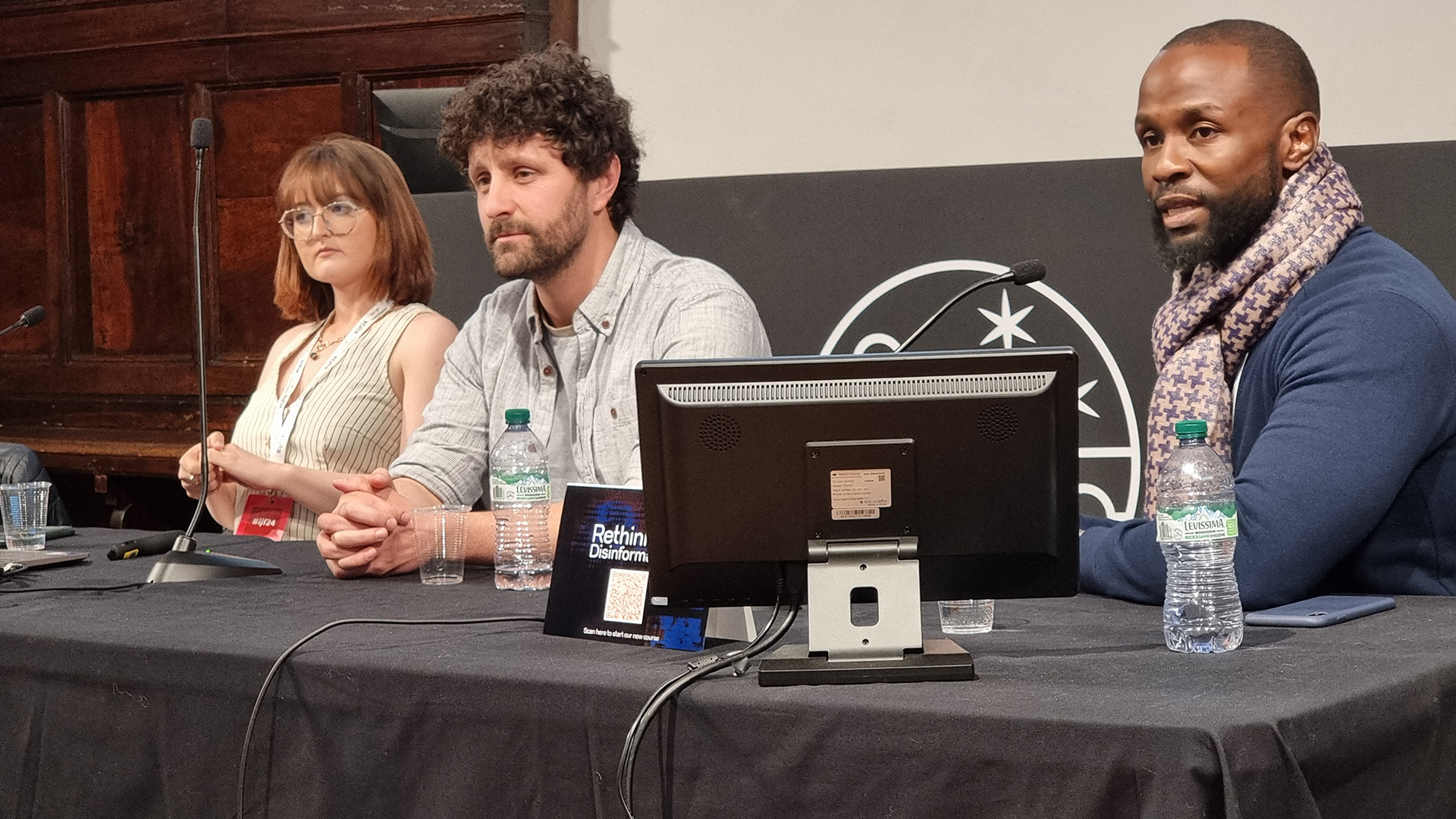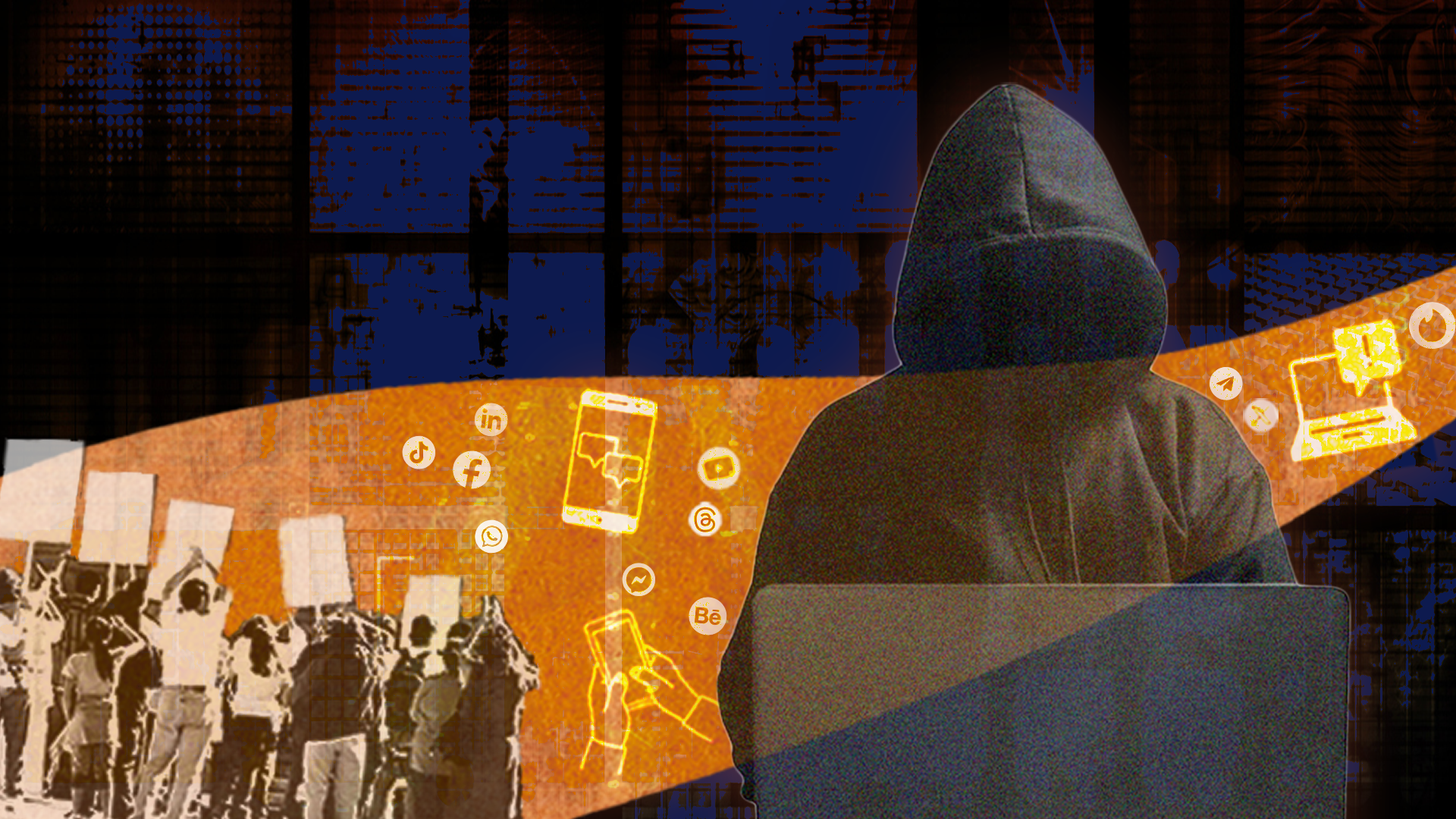Tackling lies online: the answer may be all in the mind
“Psychology can play an important role in helping us understand what audiences respond to” (Dr Jon Roozenbeek, Cambridge Social Decision-Making Lab)
For newsrooms looking to employ the latest AI tools, fact-checking and social listening tools to tackle the spread of disinformation it may be time to consider a new addition to your ‘must have’ list: a psychologist.
Dr Jon Roozenbeek from the University of Cambridge’s Social-Decision Making Lab may have been kidding when he told an audience at the International Journalism Festival in Perugia that every newsroom needed a psychologist, but the thinking behind it is deadly serious.
“Psychology can play an important role in helping us understand what audiences respond to,” said Jon, who explained how a concept called ‘prebunking’ could be used by journalists to tackle the spread of mis and disinformation during this bumper year of global elections.
“You try to predict what might go viral, or what people might be exposed to in the future or near future and then you debunk it pre-emptively,” he said.
Jon's latest book ‘The Psychology of Misinformation’ was co-written with Professor Sander van der Linden who’s an expert in our new free online course: Rethinking Disinformation.
There is a withdrawal of certain groups from society because the pillars of trust that they used to believe in have crumbled...
Jon was joined on our panel to discuss ‘Digital resilience for journalists in a year of elections’ by investigative journalist John-Allan Namu, who’s the co-founder of Africa Uncensored, and Charlotte Maher, the social media editor for Bellingcat.
“[Disinformation] is a problem that’s so big we need fairly big and audacious solutions to be able to counter it,” said John-Allan. He revealed that previous elections in Kenya had shown the country being used as ‘a testing ground’ for new ways of disseminating disinformation which could be then applied elsewhere.
“There is a withdrawal of certain groups of people from society because the pillars of trust that they used to believe in either have crumbled or no longer exist and all you're seeing today is a replication of that online,” said John-Allan.

Something that isn't talked about very often when it comes to AI is the risk of AI audio.
Generative AI
Harnessing the power of generative AI tools was a key theme of this year’s festival. As newsrooms globally struggle with the ‘trust’ issue many are clearly hoping that technology can provide one solution. But the downside too remains apparent.
Charlotte Maher from Bellingcat told the panel audience: “I think something that isn’t talked about very often when it comes to AI is the risk of AI audio.”
AI audio deepfakes have appeared in recent election campaigns but she said the AI tools weren’t there to help journalists expose them in the same way as they were for images and video. Charlotte revealed that Bellingcat is focusing on media literacy and educating the public.
Watch the complete recording of our panel ‘Digital Resilience for Journalists in a Year of Elections’ now on YouTube.
Jon Roozenbeek suggests journalists learn tricks such as repeating the message which are used by disinformers to persuade audiences to listen. “You need to ensure somehow that there remains a sort of organic demand for what you’re doing,” he said. “If you develop a video that you run as an ad on YouTube, that people see as part of a media literacy programme, then the video better be interesting...but also you need to be enticed to watch the next video as well... So that’s an innovation question that is not easy.”
The International Journalism Festival is held every year in the Italian city of Perugia and attracts hundreds of journalists, tech executives, and civic society organisations to discuss some of the most crucial issues in the Media industry.

Stopping false information
Our course Rethinking Disinformation is free and available now via the Journalism Now e-learning platform.